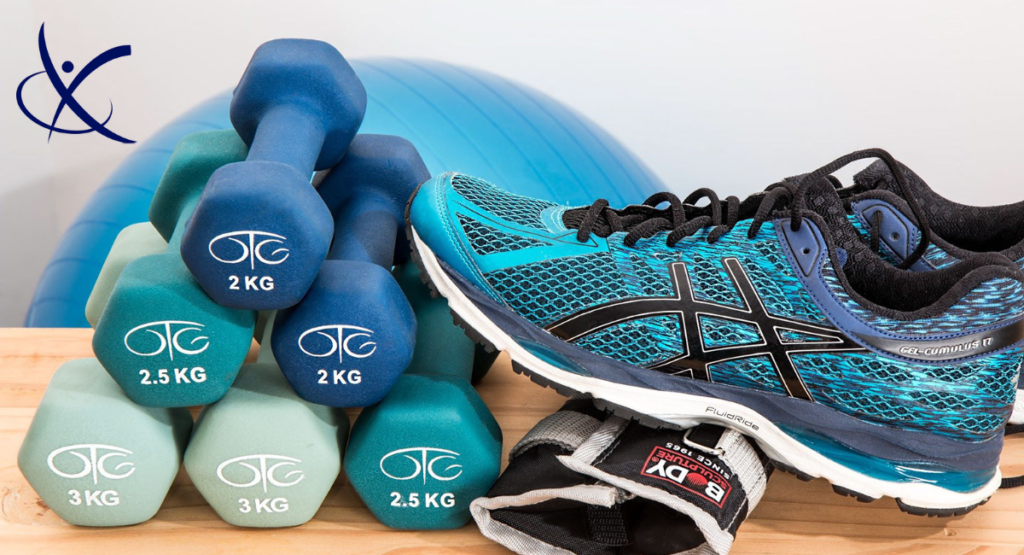5 Questions to Ask Before Starting a New Routine
HOW TO STAY HEALTHY & SAFE IN THE NEW YEAR
I am going to focus this blog on several variables that I feel are imperative to staying healthy no matter whether you are looking to improve your health or recover from COVID-19. If you are in recovery, please watch this to learn more about how to properly return to activity after testing positive!
When looking to start an activity or return to an activity after a prolonged period of inactivity, it is important to not just dive into the deep end. Ramping up activity too quickly is one reason we often see individuals entering our clinics looking for assistance after the new year. To help prevent this from happening in 2021, I want to share some generalized advice on how to re-enter the world of activity safely.
Here are some practical questions to ask yourself prior to starting a new routine:
- How active have I been in the past several months?
- What are my nutrition habits like?
- Am I sleeping enough?
- What are my weekly stress levels and how do I manage them?
- What has happened in the past to make me not successful in completing my new year’s resolution?
These five questions are important when trying to implement a new fitness routine but more importantly succeeding in one. In my years of practice, I have seen immediate overtraining or undertraining, poor nutrition (too much or too little food intake), lack of sleep, and poor stress management strategies lead to failure of a new routine. So, let us dive a little deeper into the importance of these variables.
Too much too fast is a recipe for disaster. When getting back into activity, there are three variables I often discuss with my patients and athletes. They are frequency, duration, and intensity (FDI). Frequency is how often a task is done, duration is how long, and intensity is how hard. When implementing a new activity into your routine whether it be weightlifting, running, swimming, cycling, etc., frequency should always increase first, followed by duration and intensity. For example, if you are currently running one time per week for 10 minutes, you should not jump to running four days a week for 20 minutes. The goal would be to gradually increase from one day a week for ten minutes to four days per week for ten minutes and then after that increase the duration. Intensity (speed of running) would be the very last thing to increase! To read more on this feel free to check this out.
Nutrition matters. I am not a dietician, nutritionist nor a weight loss specialist. However, I do work with individuals on performance goals and what I can tell you is that nutrition counts. Often, individuals start a diet and exercise regimen at the same time and sometimes end up in a poor situation. Remember, for your body to stay healthy and injury free, you need energy and energy comes from food. So, if you are feeling sluggish or have experienced an injury, it might be time to consult a registered dietitian for some advice!
Lack of sleep = poor performance & risk for injury. I am sure you have heard that you should be getting 8+ hours of sleep a night and folks, I hate to break it to you, but it is not a myth. Sleep is an imperative part of our lives and without it, we are at an increased risk for things such as poor athletic performance, injury, diabetes, illness, fat storage, depression, arthritis, anxiety, and increased hunger. It is a time where our bodies recover and perform functions vital to health & well-being! So, if you are struggling with sleep, I recommend trying to focus here first!
Stress = Stress = Stress. Too much stress can be related to a lack of energy, lack of physical activity, binge eating, drinking and so forth. Obviously, just from reading those things we can all attribute them to negative side effects on our health. Stress can have significant negative effects on our health and wellness especially when trying to achieve health and fitness goals. If stress management is an area you struggle in, work with someone to help develop new strategies to assist you in stress relief! I also tend to recommend exercise and meditation, but that is just me. 😊
Well folks, I am pretty sure many of you may relate questions one through four to number five. I know I sure can! If something else has contributed to being unsuccessful at achieving your goals, look at re-shaping and re-visiting the goal with a new mindset! If you are struggling to achieve your new year’s goals or are looking for further guidance, please do not hesitate to ask for help! One of our main goals here at Feldman Physical Therapy & Performance is to assist others in being successful during their health and wellness journey. Here is to a happier and healthier 2021!
Ashley Witson, PT, DPT
